Are you wanting to go fishing while camping? A lot of people know how to fish and know how to camp, but the prospect of combining the two is somehow daunting. We're working with Take Me Fishing to share our tried-and-true tips for getting your pole in the water while you're overnighting in the wilderness.
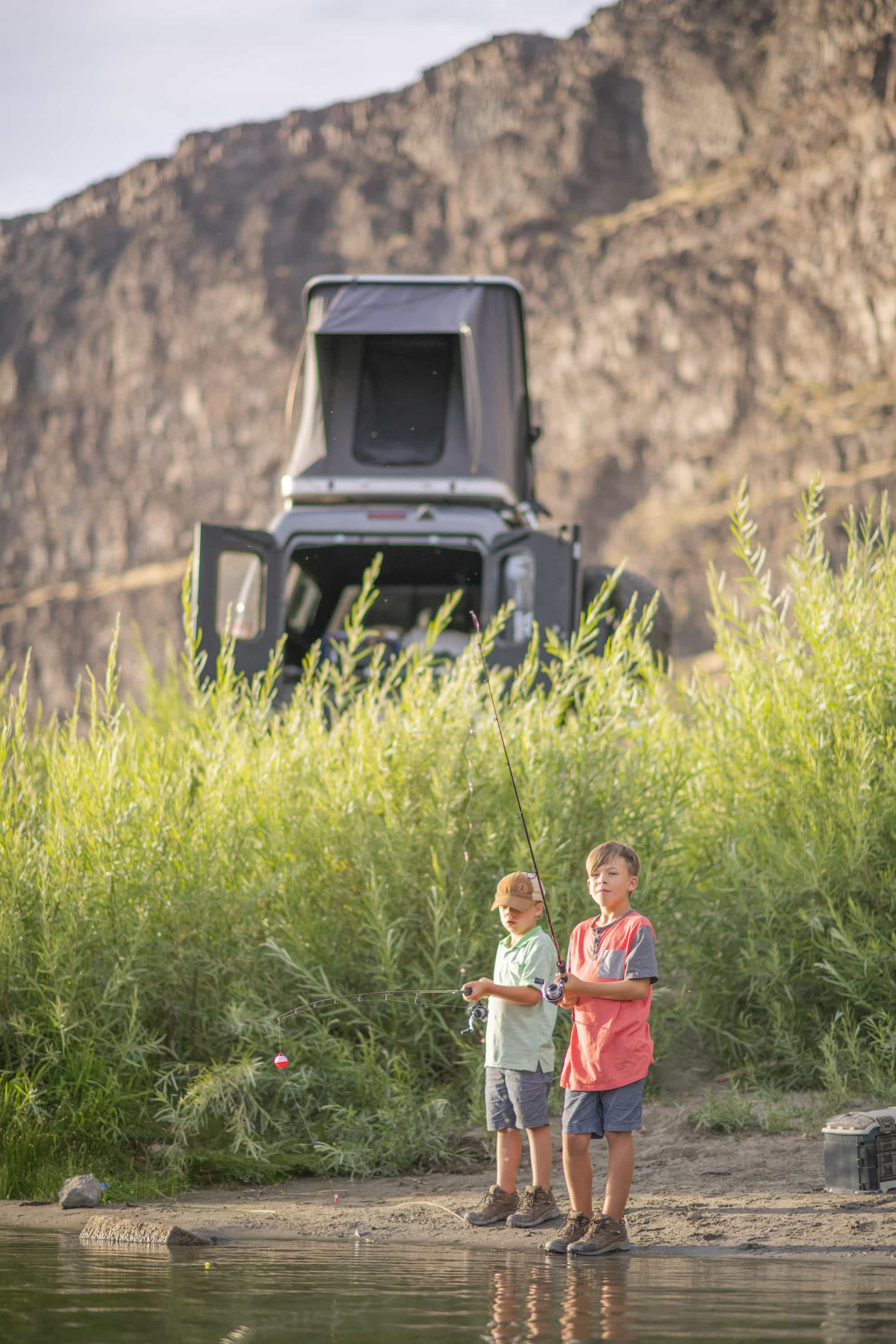
What to Pack for Fishing while Camping
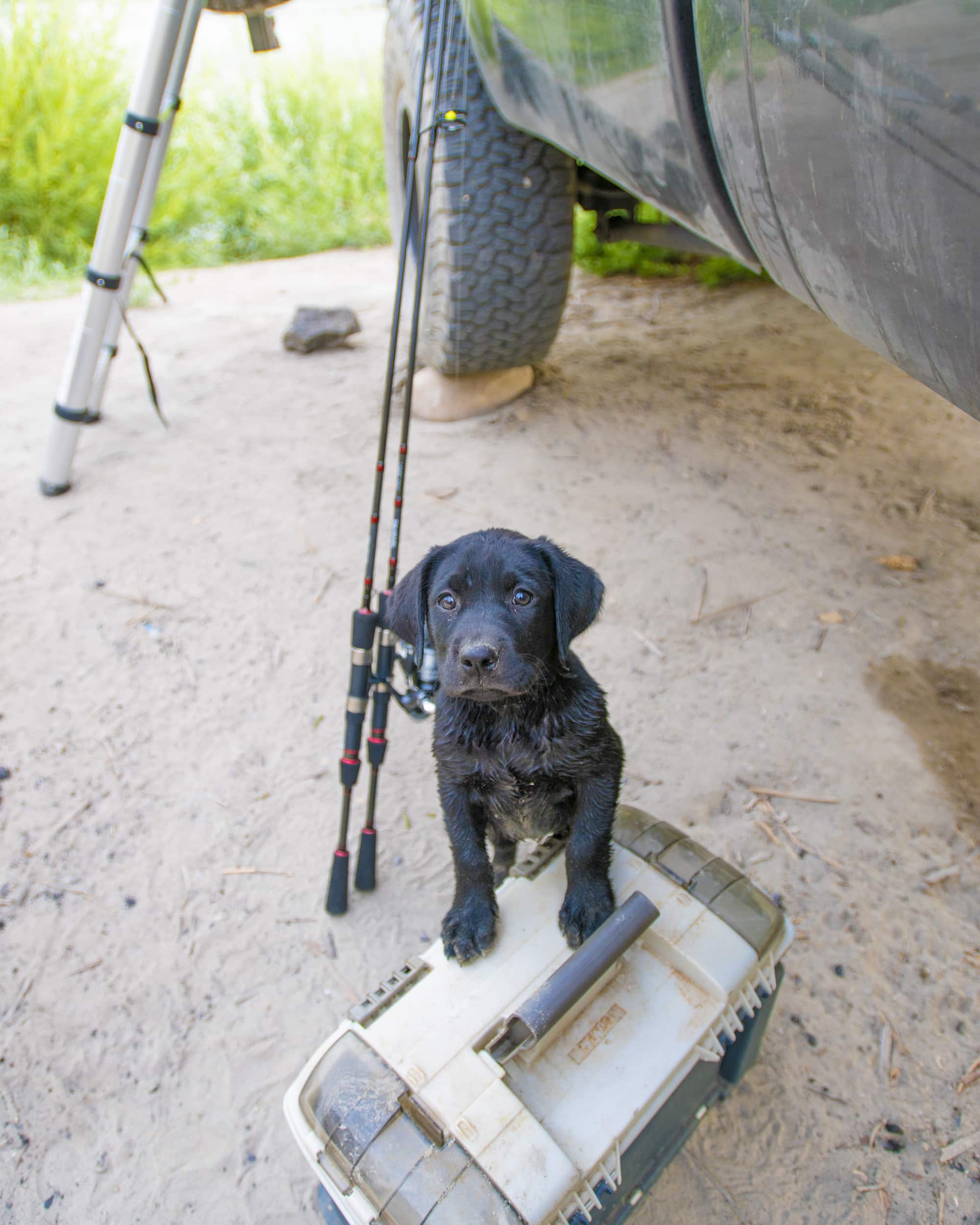
Consider seasonality. Are you fishing while camping with a dingy on a summer stream? You'll need sunscreen and bug repellant! Ice fishing on an Alaskan pond? Definitely grab some hand warmers and a beanie. Be logical, considering your personal needs and the environment. In the fall, you’ll definitely want to be prepared with lots of layers for ever-changing weather!
Make sure you have must-have gear specific to fishing while camping in the area. We've learned that some areas call for no-see-um nets, others are so dusty and dirty that you wind up needing a million face and hand wipes. Research the area, and be prepared!
First aid is another necessary item that we don't go anywhere without. Antiseptic, gauze and wraps, fever reducer, etc. Pack as if you'll be stranded, away from civilization, in the absolute worst case scenario.
Where to Go for Fishing while Camping
Ask local tips and guides for advice! This is hands-down the best way to get a successful catch. We always put feelers out, asking friends and family what they know about each area that we're going to. If we don't know anyone in the area, we hire a guide or simply drop in to a local tackle store and ask the folks behind the counter where they've had luck lately. The map at TakeMeFishing.org not only shows you the best places to fish, but also gives you forecast of fish species and best times to catch.
Positioning yourself near the water is another obvious necessity for a successful fishing day, but it's an extra consideration when you plan to camp. Do you need to reserve campsites ahead of time on a government website or through a KOA? Is there BLM land with open access? Is it first-come, first-served? Learning about the area through resources such as Yelp, Google Maps, outdoor enthusiasts and camping forums can be crucial for your experience. You can also check out TakeMeFishing.org for specific state regulations. This is a great way to ensure you have the most fun possibly when out with the kids.
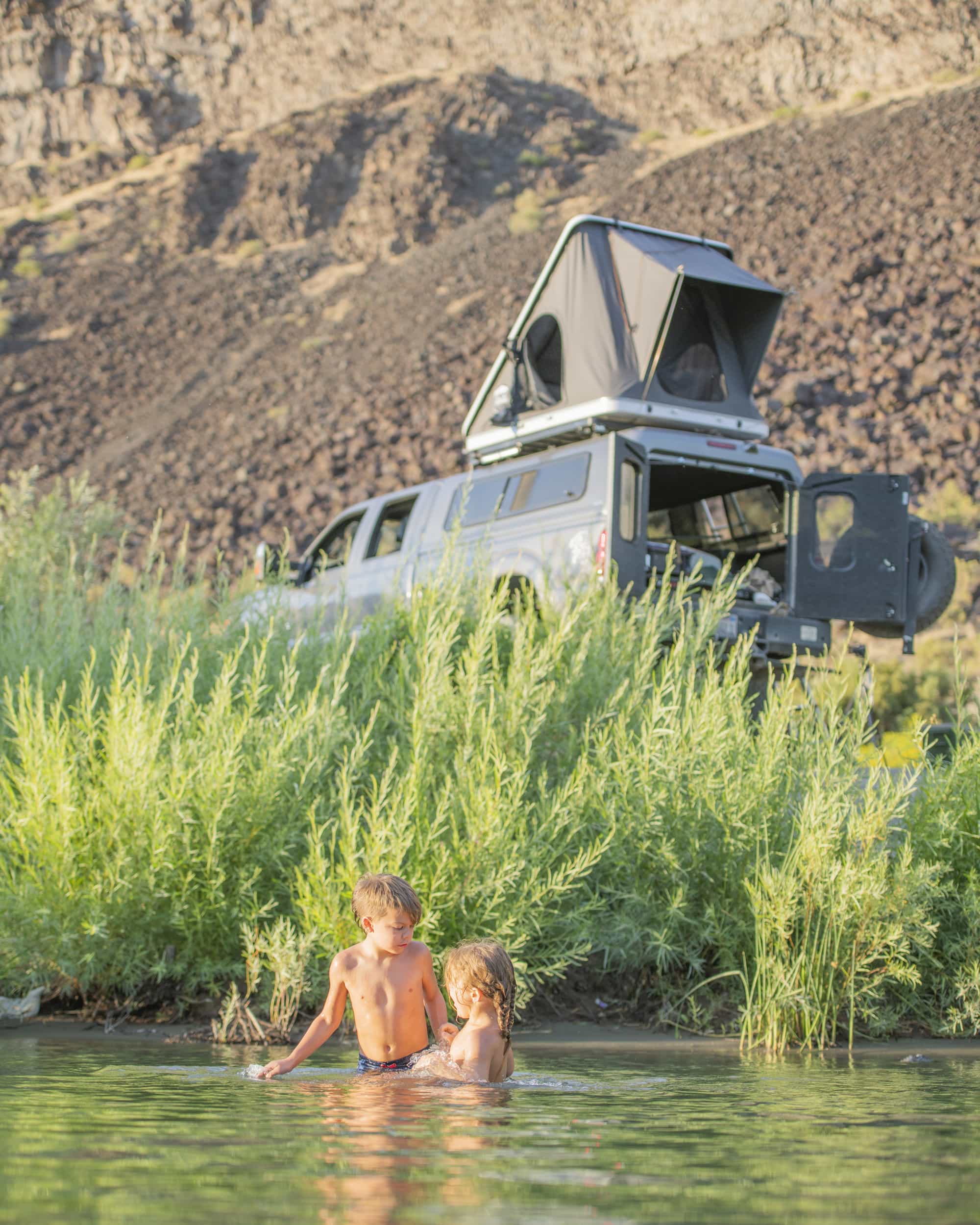
Terrain considerations are another thing to think about. Don't head off into a 4×4 wilderness with a sedan. Likewise, don't take a 40-foot RV into a busy city campground when you don't know that you'll fit! Check out accessibility of the area in terms of your vehicle and know how far you'll need to hike from camp to shore.
Transporting Fish around Camp
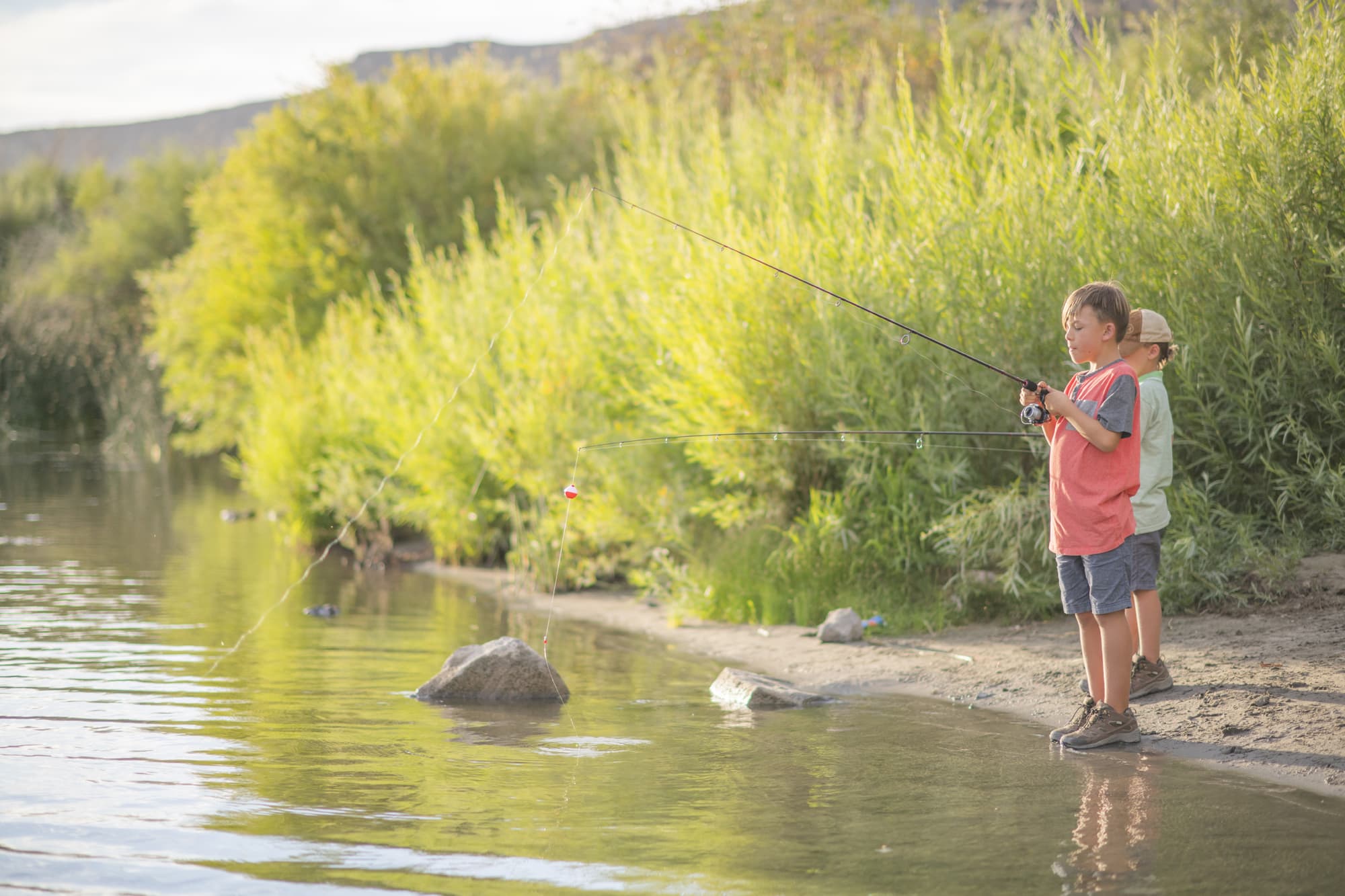
Bleeding and gutting is a common way of transporting fish when you want to keep them whole. Simply remove their heads and drain into the water so the blood doesn't spoil the meat. Pack em up, and you're good to go!
Filleting is the most common way that our family manages our fish when we're fishing while camping. It involves:
- Removing the head
- Bleeding it out
- Running a knife up from the tail to where the head used to be, gliding over the spine as a guide
- Remove the guts
- This is when we typically remove the skin, if we choose to do that (a lot of people just eat it).
- Next, flip the fish over, insert the knife and glide over the spine again
- De-bone with a set of tweezers or knife
Fish prepared this way are good for a couple days, or will last for 2 to 3 months in the freezer.
Ice chests and storage are an important consideration. No matter which of the above methods above you use to transport fish around camp, you'll want ice chests on-hand to take your fish from the catch site back to your house (unless you plan to cook them all immediately at the site with no leftovers). We use regular freezer bags for storage.
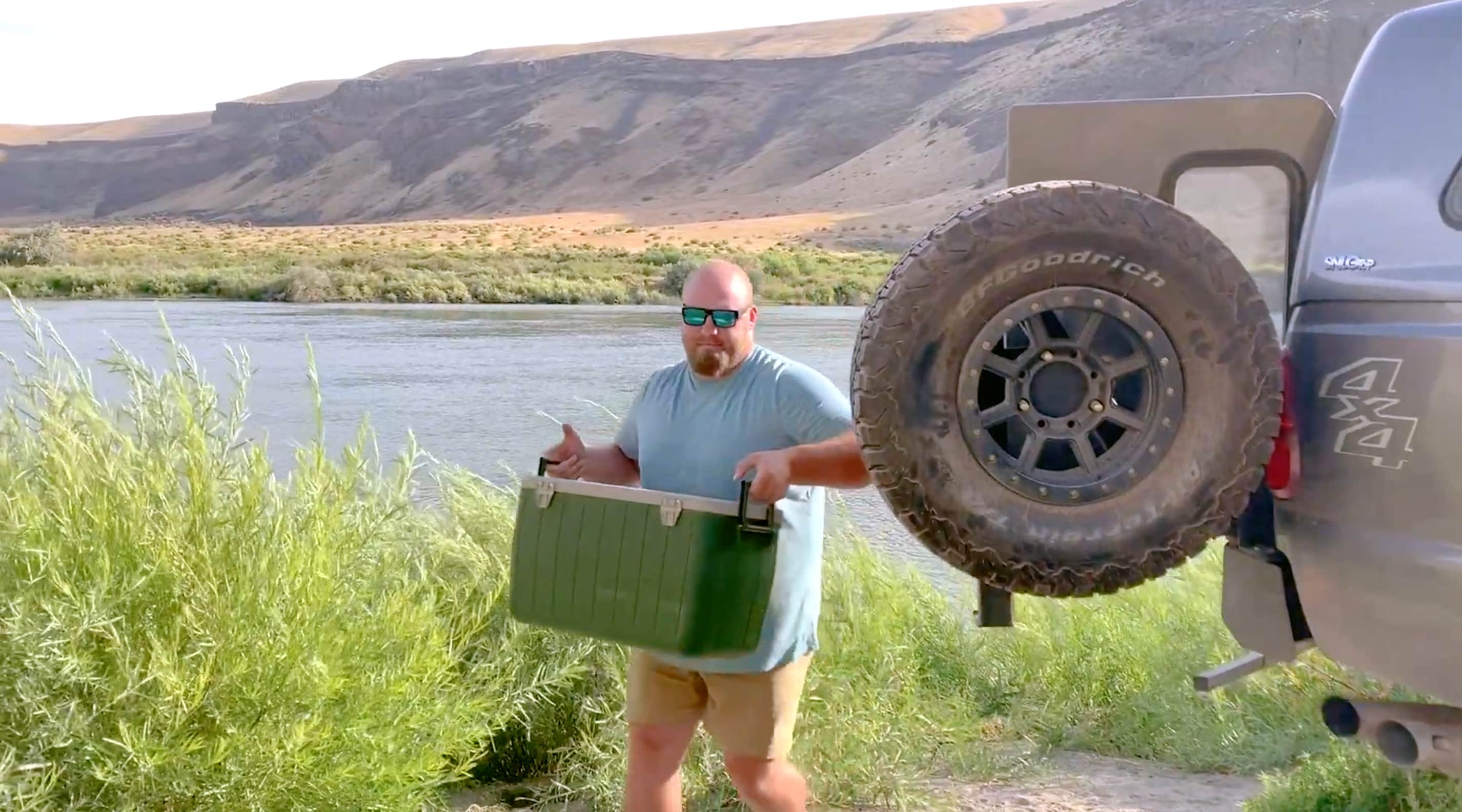
Cooking at the Campsite
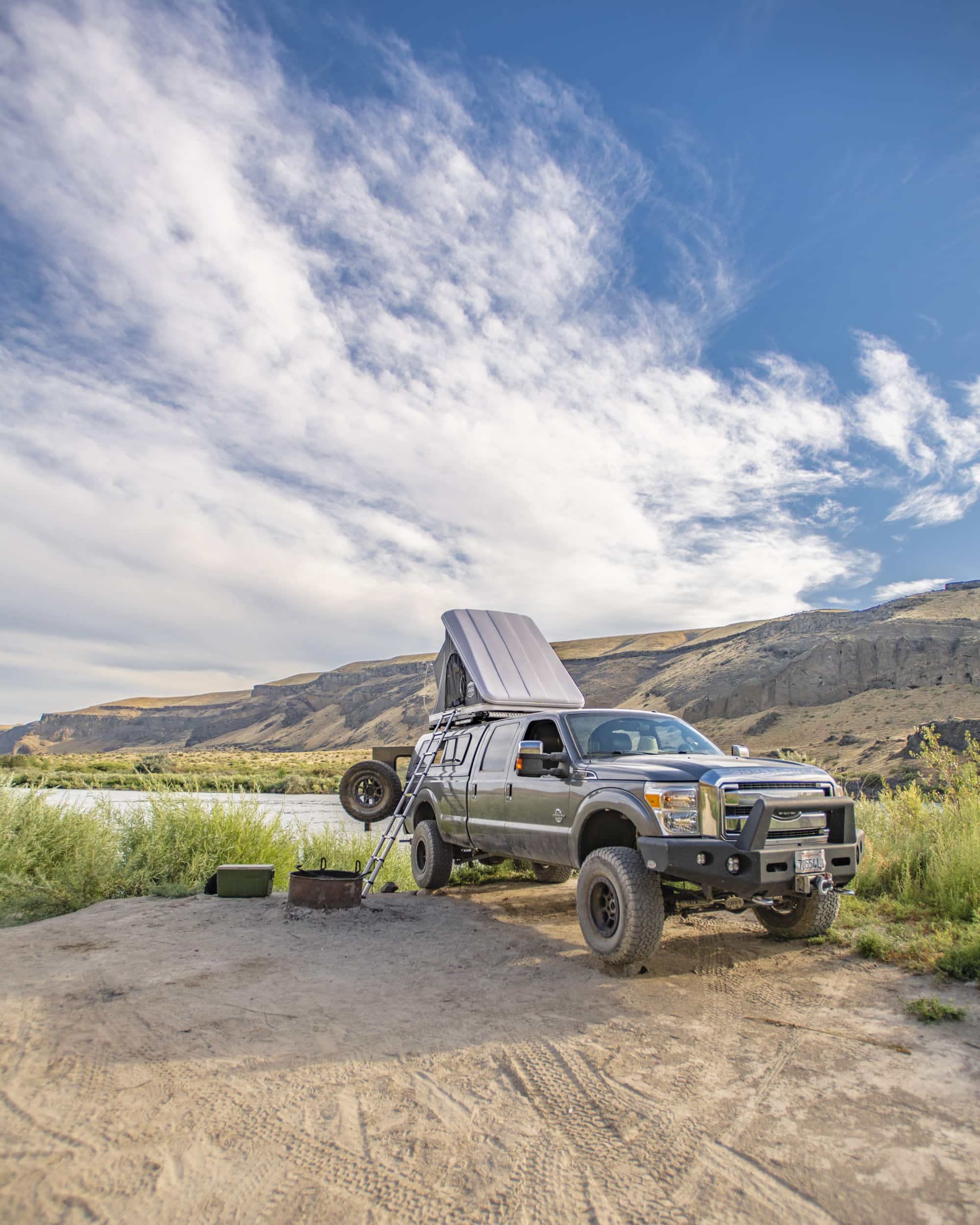
Consider if you're working with open flame or propane grills. Will you be cooking over a fire? If so, you'll probably want a grill apparatus or at least some tin foil to wrap the fish in to protect it from direct flames, and tongs to retrieve it. If you're cooking over a propane grill, consider what pots or pans you'll be using and whether or not you'll need oil to keep the fish from sticking. MAKE SURE TO DO YOUR RESEARCH!!! Not all areas you can camp or fish allow open flame or charcoal due to recent fire hazards. Do a quick google, visit a guard or ranger, or pay attention to signage and that should get you started in the right direction. Use common sense. If the ground vegetation is dry or your'e in a historical fire area…don't light a match.
Don't forget the seasoning! Seasoning preferences will vary per your tastes and what kind of fish you're catching. We like to pack lots of garlic (this also comes in handy for catching fish!) as well as buttermilk and flour for catfish, or lemon, paprika and butter for trout or salmon. You can pick up a few small bottles to bring along so you can try different flavors on the same type of fish and see what suits you best.
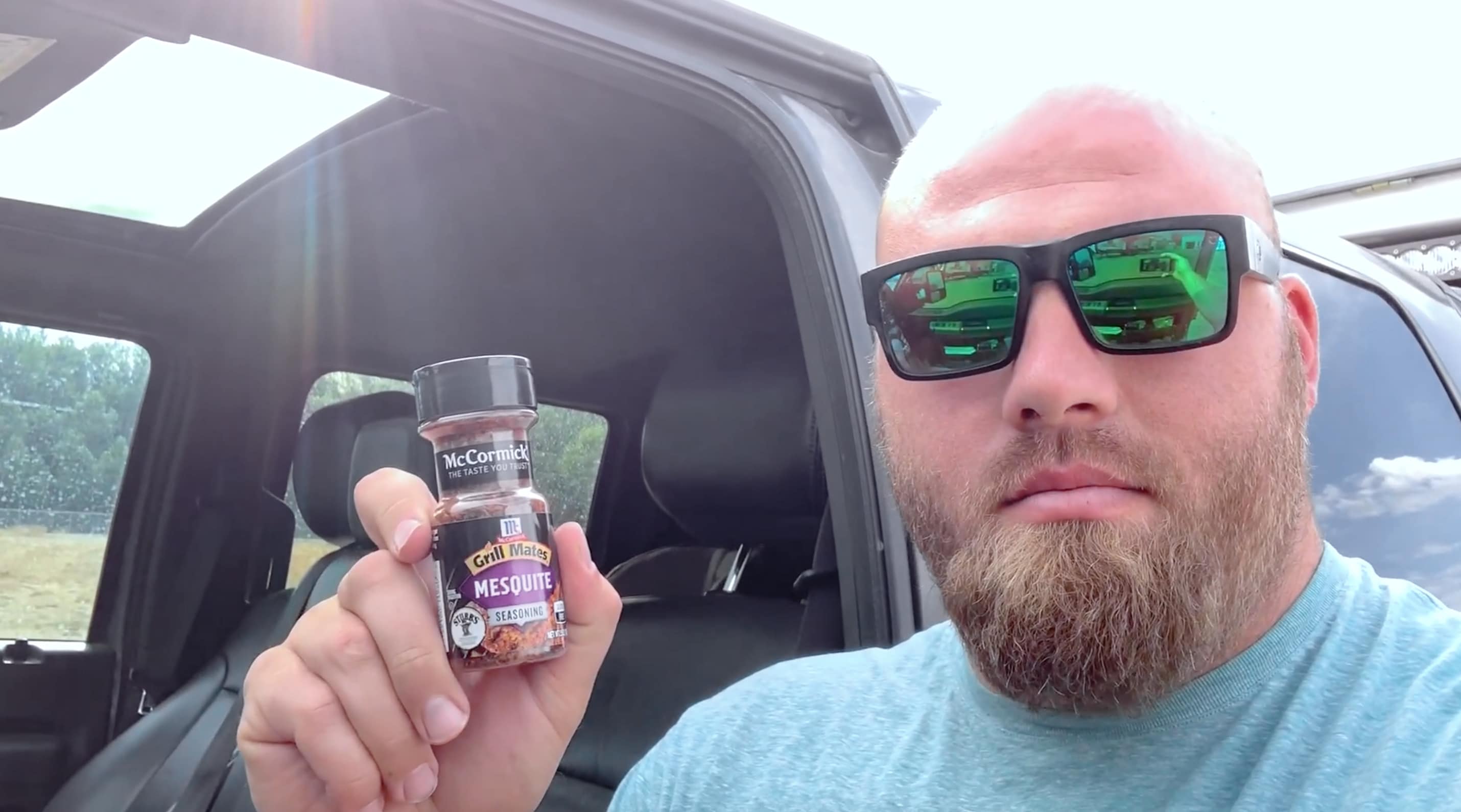
Cleaning up After Yourself
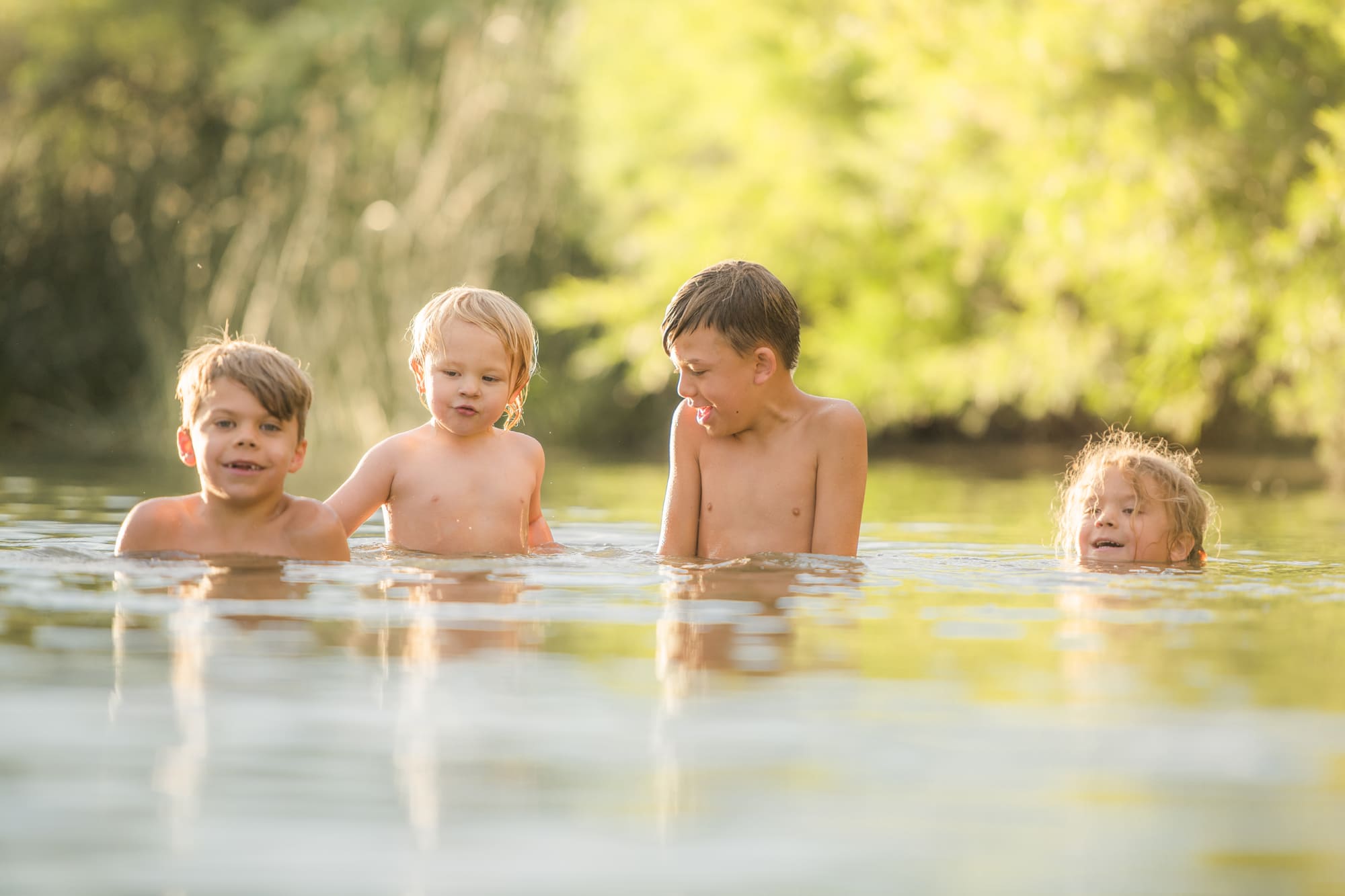
We always practice “leave no trace,” meaning that we want campsites to have no remnants of us whatsoever. In fact, we even make sure to clean up any extra trash or debris leftover from previous campers to preserve the area for generations to come. You can be your brother's keeper. It's also how we ensure we keep great fishing spots open.
After our experience with bears, we realized that it's critically important to know how to store fish properly when fishing while camping. As we learned on that trip, there isn't always a place to hang food from a tree. Your best bet is a bear-proof cooler and a meticulous wipe-down of ALL cooking utensils. We use Clorox wipes to thoroughly sanitize anything that has touched fish, and we deposit their carcasses as far as possible from campsites.
Have you ever gone fishing while camping?